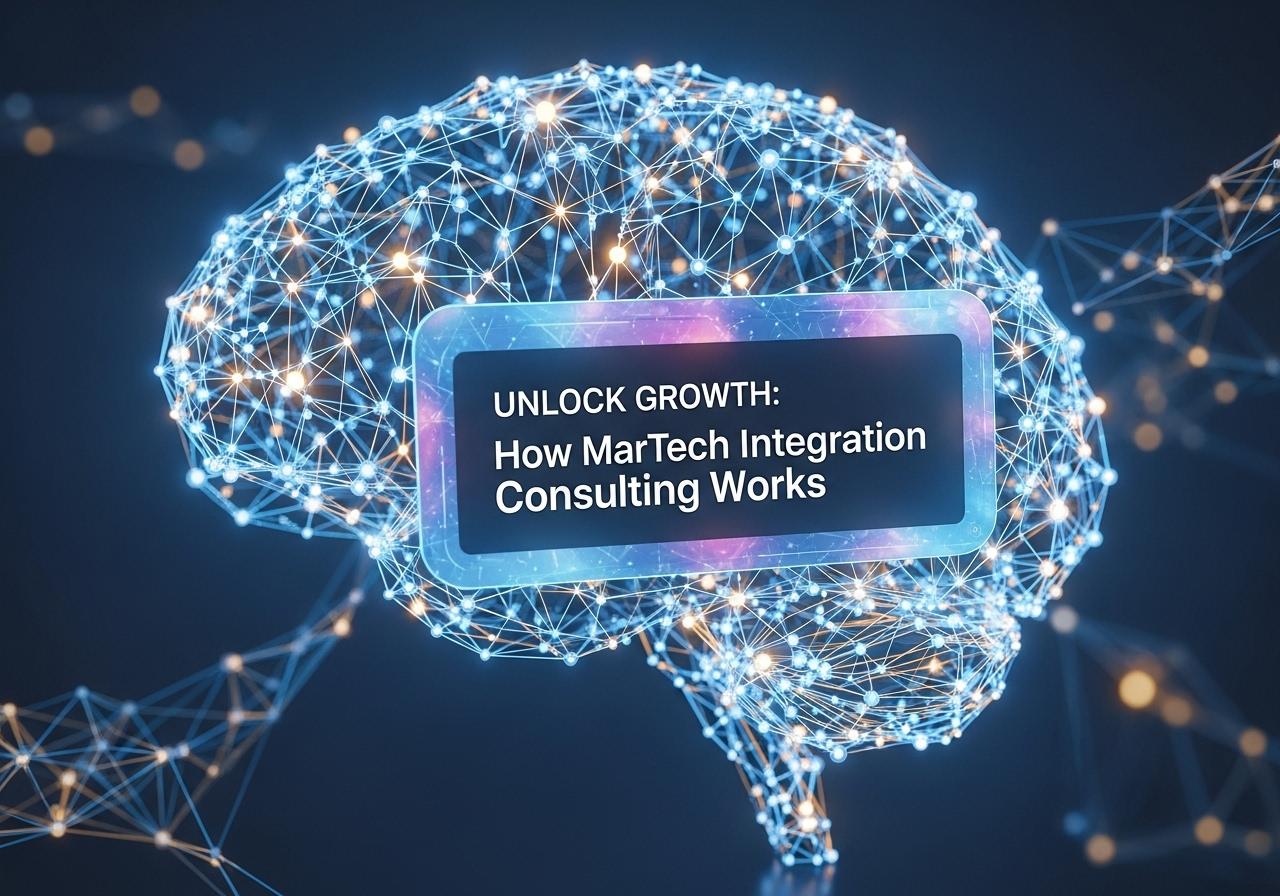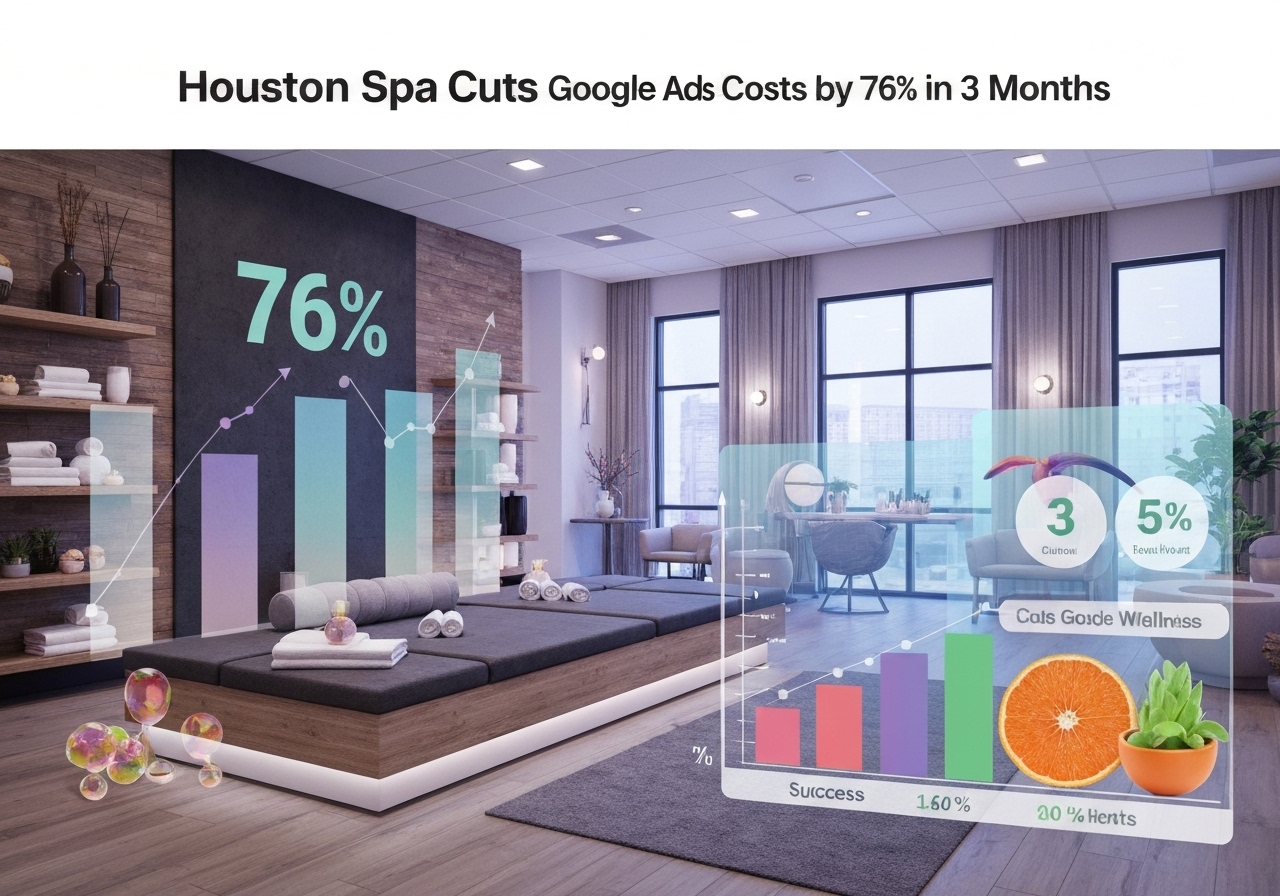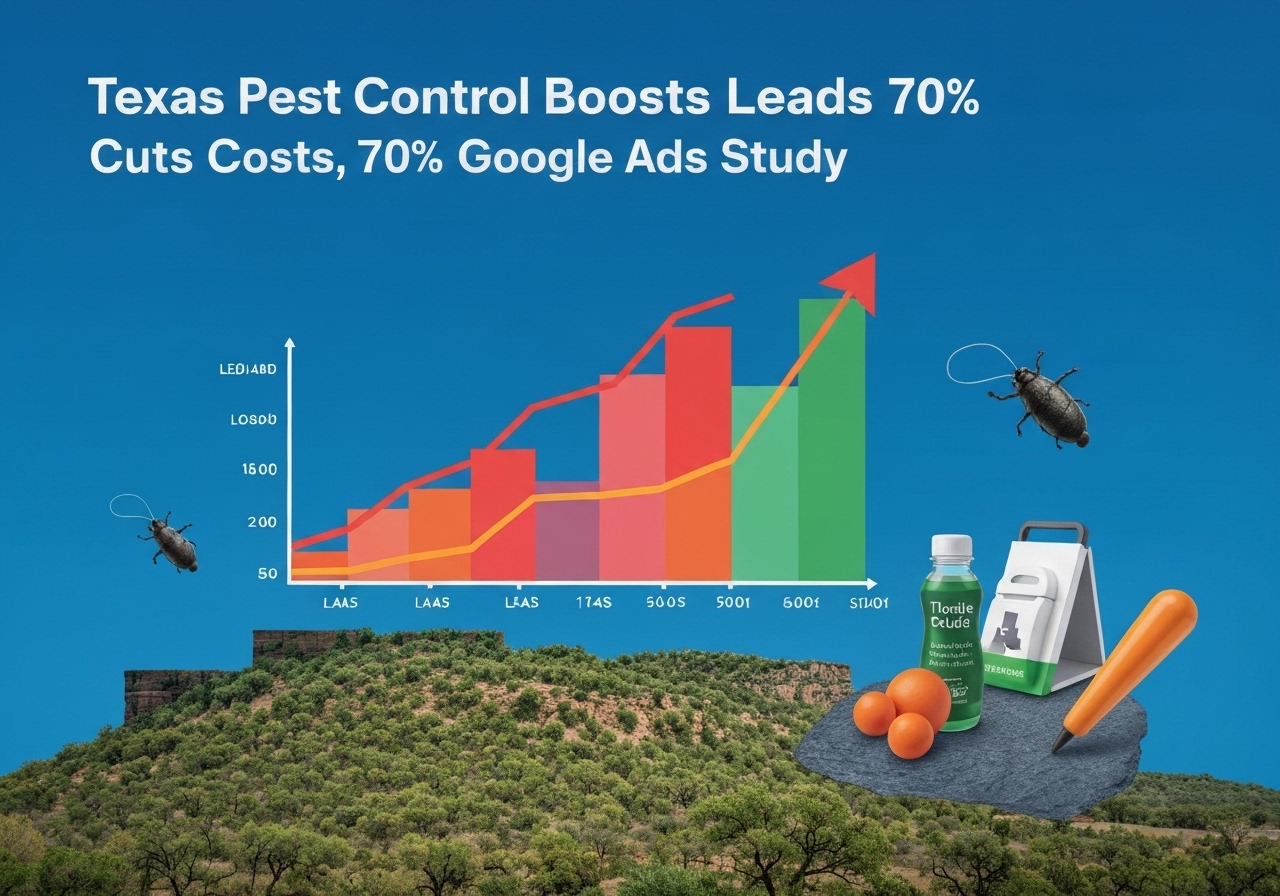Did you know that the global marketing technology landscape has exploded to over 11,000 solutions in 2025, up from just 150 in 2011? That’s a staggering 7000% increase that has left many businesses drowning in disconnected tools and fragmented data. As marketing technology spending continues to surge past $400 billion this year, companies are facing a critical challenge: how to integrate these powerful but often siloed solutions into a cohesive, revenue-generating ecosystem.
The MarTech Integration Crisis of 2025
In today’s hyper-digital business environment, marketing technology integration has become the cornerstone of competitive advantage. Yet despite massive investments in cutting-edge tools, many organizations struggle to realize their full potential due to integration challenges.
A recent survey of marketing technology decision-makers revealed that the leading barrier to a successful martech solution stack was platform integration. This disconnect isn’t just frustrating—it’s expensive, inefficient, and prevents businesses from delivering the seamless customer experiences that drive growth.
The Real Cost of Disconnected Systems
When your marketing tools don’t communicate effectively, you’re essentially running multiple parallel operations rather than a unified marketing machine. This leads to:
- Data silos that prevent a complete view of customer journeys
- Inconsistent messaging across channels
- Wasted resources on duplicate efforts
- Inability to attribute marketing activities to revenue
- Missed opportunities for personalization and targeting
As we move deeper into 2025, the companies that thrive will be those that solve the integration puzzle—not those that simply accumulate more tools.
The Rise of Marketing Technology Integration Consulting
Marketing technology integration consulting has emerged as a critical service for businesses looking to maximize their martech investments. These specialized consultants bridge the gap between marketing strategy and technology implementation, ensuring that your tech stack works in harmony to achieve business objectives.
What Marketing Technology Integration Consultants Actually Do
Marketing technology integration consultants provide expertise across several key areas:
MarTech Stack Assessment and Optimization
Integration consultants begin by conducting comprehensive audits of existing technology ecosystems. They evaluate each tool’s functionality, performance, and contribution to overall marketing goals. This process identifies redundancies, gaps, and integration opportunities that might otherwise go unnoticed.
Strategic Integration Planning
Rather than approaching integration as a purely technical exercise, consultants develop strategic roadmaps that align technology decisions with business outcomes. They prioritize integration points based on their potential impact on customer experience, operational efficiency, and revenue generation.
Custom Integration Solutions
When direct integrations between platforms aren’t available, consultants develop custom middleware solutions or API connections to bridge gaps. This expertise is particularly valuable as the technology consulting market is forecast to grow by 7% to $421 billion in 2025, with implementation services accounting for over $200 billion.
Change Management and Training
Technology integration often requires shifts in processes and workflows. Consultants facilitate these transitions through comprehensive change management strategies and training programs that ensure adoption and maximize return on investment.
Key Trends Shaping Marketing Technology Integration in 2025
The marketing technology landscape continues to evolve rapidly. Here are the dominant trends influencing integration strategies in 2025:
Marketing Automation & CRM Integration
The combination of customer relationship management systems like HubSpot and Salesforce with marketing automation platforms has become essential for sophisticated lead scoring, email drip campaigns, and pipeline management. This integration allows marketers to segment audiences by client vertical (finance, retail, healthcare) or project size (SMB, enterprise) to deliver highly relevant content offers.
When properly integrated, these systems enable marketing teams to track cross-channel engagement and ensure that in-person networking or event attendees receive targeted digital content. The result is more consistent lead nurturing, better forecasting, and improved synergy between marketing and sales teams.
AI and Advanced Analytics Integration
Advanced analytics—widely seen as a precursor to large-scale AI solutions—along with data visualization and business intelligence tools are expected to accelerate in growth throughout 2025, growing globally by 11%. With global market revenue of AI projected to reach $89.85 billion by 2025, integrating these capabilities into your marketing stack has become non-negotiable.
AI-powered tools can analyze customer data across platforms to identify patterns and predict behaviors, but their effectiveness depends on access to comprehensive, integrated data sources. Marketing technology integration consultants specialize in creating the data pipelines and connections that allow AI systems to deliver actionable insights.
Virtual Collaboration & Workshop Tools Integration
The continued prominence of remote and hybrid work models has elevated the importance of integrating video-conferencing solutions (Zoom, Teams, Webex) with collaborative whiteboard or brainstorming apps (Miro, Mural). These integrations bring an interactive edge to online workshops and enhance collaboration between internal teams and agencies.
Marketing technology integration consultants can help organizations orchestrate these remote engagement platforms to work seamlessly with content management systems, project management tools, and analytics platforms, creating a cohesive environment for creative development and campaign execution.
Building an Integrated MarTech Stack: A Strategic Approach
Developing an effective integrated marketing technology ecosystem requires a methodical approach. Here’s how marketing technology integration consultants typically tackle this challenge:
1. Audit Your Current MarTech Stack
Before making any changes, it’s essential to understand what you’re working with. A comprehensive audit should:
- Document all existing marketing technologies
- Identify who uses each tool and for what purpose
- Evaluate the performance and ROI of each solution
- Map current data flows between systems
- Identify integration gaps and redundancies
This assessment provides the foundation for strategic decision-making about your technology ecosystem.
2. Define Clear Marketing Operations Strategy Objectives
Technology decisions should always serve business goals. Marketing technology integration consultants work with stakeholders to establish clear objectives for the integrated stack, such as:
- Improving customer experience across touchpoints
- Enhancing data-driven decision making
- Increasing marketing efficiency and reducing manual tasks
- Enabling more personalized customer communications
- Improving attribution and ROI measurement
These objectives become the north star for all integration decisions.
3. Prioritize Integration Points
Not all integrations deliver equal value. Consultants help organizations identify and prioritize the most impactful connection points between systems. This typically involves:
- Mapping the customer journey across touchpoints
- Identifying critical data handoffs between teams
- Determining which integrations will deliver the quickest wins
- Assessing technical feasibility and resource requirements
This prioritization ensures that integration efforts focus on driving business results rather than technical elegance.
4. Choose the Right Integration Approach
There are multiple approaches to connecting marketing technologies:
Native Integrations: Many platforms offer pre-built connections to popular tools. These are typically the easiest to implement but may offer limited functionality.
Middleware Platforms: Integration platforms like Zapier, Tray.io, or Mulesoft can connect multiple systems without custom development. These solutions can be ideal for connecting disparate tools in your marketing ecosystem.
Custom API Development: For complex requirements or when native integrations aren’t available, custom API connections may be necessary. While more resource-intensive, these offer the greatest flexibility.
Unified Platforms: In some cases, consolidating multiple functions into a single platform may be more effective than integrating separate tools.
Marketing technology integration consultants evaluate these options based on your specific needs, existing investments, and future scalability requirements.
5. Implement Effectively with Change Management
Technology integration isn’t just a technical challenge—it’s an organizational one. Successful implementation requires:
- Clear communication about the purpose and benefits of integration
- Comprehensive training for all users
- Updated workflows and processes that leverage new capabilities
- Ongoing support during the transition period
- Performance monitoring and optimization
This human element is often where integration efforts succeed or fail, making change management expertise a critical component of marketing technology integration consulting.
Measuring Success: KPIs for Marketing Technology Integration
How do you know if your integration efforts are delivering results? Marketing technology integration consultants typically establish metrics in several key areas:
Operational Efficiency
- Reduction in manual data entry time
- Faster campaign deployment
- Improved resource allocation
Customer Experience
- More consistent messaging across channels
- Improved response times
- Enhanced personalization capabilities
Marketing Performance
- Better attribution of marketing activities to outcomes
- Improved conversion rates
- Higher marketing ROI
Data Quality
- Reduction in duplicate or conflicting data
- Improved data completeness
- Enhanced data accessibility
Regular assessment of these metrics helps refine integration strategies and demonstrate the business value of integration investments.
The Future of Marketing Technology Integration
Looking ahead, several emerging trends will shape marketing technology integration:
AI-Driven Integration: As AI capabilities advance, we’ll see more intelligent systems that can automatically discover, suggest, and even implement integrations between marketing tools.
Composable Architecture: The future belongs to modular, API-first platforms that can be assembled like building blocks rather than monolithic solutions that try to do everything.
Real-Time Integration: The delay between data collection and activation will continue to shrink, with real-time integration enabling immediate response to customer behaviors.
Privacy-Centric Integration: As privacy regulations evolve, integration solutions that prioritize secure data handling and compliance will become essential.
Marketing technology integration consultants are already preparing for these shifts, helping forward-thinking organizations build flexible, future-proof technology ecosystems.
Is Marketing Technology Integration Consulting Right for Your Business?
While the benefits of integrated marketing technology are clear, not every organization needs to engage specialized consultants. Consider these factors when evaluating your needs:
- Complexity of Your Current Stack: Organizations with numerous disconnected tools typically benefit most from integration consulting.
- In-House Technical Expertise: Companies lacking dedicated marketing technologists may need external support for complex integration projects.
- Growth Trajectory: Rapidly growing businesses often need help scaling their marketing technology to keep pace with expanding needs.
- Customer Experience Goals: If delivering seamless, personalized customer experiences is a priority, integration consulting can help align your technology with these objectives.
- Data-Driven Ambitions: Organizations seeking to become more data-driven in their decision-making often benefit from expert guidance on integrating data sources.
Taking the Next Step
The marketing technology landscape will only grow more complex as we move through 2025 and beyond. Organizations that successfully navigate this complexity through strategic integration will gain significant competitive advantages in efficiency, customer experience, and marketing effectiveness.
Whether you’re just beginning to explore marketing technology integration or looking to optimize an existing stack, the right expertise can make all the difference in turning your technology investments into business results.
Don’t let disconnected marketing technology hold your business back. Find out exactly what’s missing in your marketing strategy with our free 3-minute marketing assessment and get a custom growth plan tailored to your business needs.
Take control of your marketing technology today!



